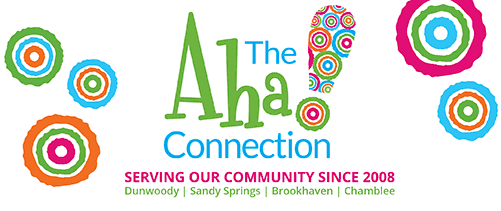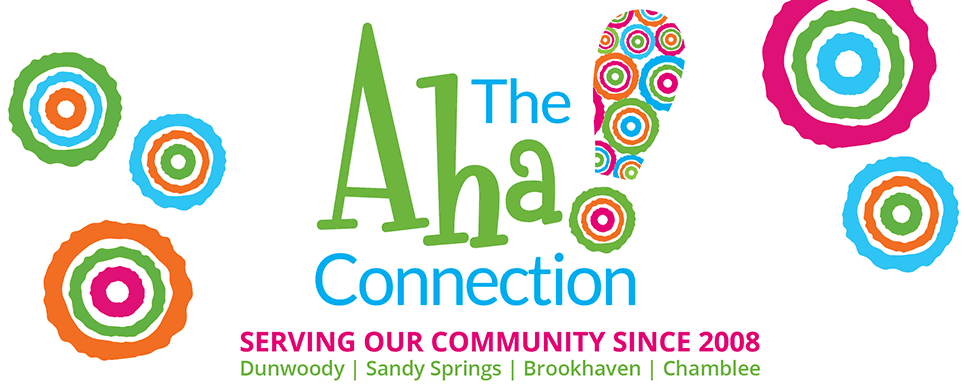By Theresa Westfall, MS, LPC, NCC of Atlanta Specialized Care for The Aha! Connection
 Parenting is an adventure—both rewarding and challenging. What works for one child may not work for another, and no child comes with an instruction manual. Navigating the complexities of parenting a child with anxiety can feel overwhelming. In my experience working with children and families, I’ve seen how parents often grapple with their own feelings while trying to help their anxious child. Many parents feel sadness over potentially passing down their own anxiety traits, while others are simply overwhelmed by their child’s distress and unsure of how to help. One common thread among these parents is the desire to assist their child without exacerbating their anxiety.
Parenting is an adventure—both rewarding and challenging. What works for one child may not work for another, and no child comes with an instruction manual. Navigating the complexities of parenting a child with anxiety can feel overwhelming. In my experience working with children and families, I’ve seen how parents often grapple with their own feelings while trying to help their anxious child. Many parents feel sadness over potentially passing down their own anxiety traits, while others are simply overwhelmed by their child’s distress and unsure of how to help. One common thread among these parents is the desire to assist their child without exacerbating their anxiety.
Step 1: Regulate Your Own Emotions
The first piece of advice for parents is this: you cannot help your child regulate their emotions if you are emotionally dysregulated yourself. Begin by recognizing the emotions your child’s anxiety stirs in you. Do you feel anxious, overwhelmed, helpless, or even angry when your child is distressed? These feelings can escalate the situation. Once you identify your emotions, it’s crucial to have tools at your disposal to calm yourself. One simple strategy is to apply a cold compress to the back of your neck, palms, or wrists, helping you ground yourself. Calming down first will enhance your effectiveness in interacting with your child and provides a valuable opportunity to model healthy coping strategies.
Step 2: Practice Reflective Listening
The second step is to listen actively to your child to understand their experience. Ask questions about their feelings and reflect back what they share to show your understanding. It can be incredibly reassuring for a child to feel heard, rather than believing that no one understands their perspective. Use phrases like, “So it sounds like…” followed by a summary of their thoughts. This technique, known as reflective listening, can help your child feel validated.
Step 3: Externalize the Anxiety
The third step is to help externalize the anxiety. If your child expresses panic about a storm, instead of focusing solely on their fear, try to frame the anxiety in a way that separates it from them. For example, you might say, “It sounds like your anxiety is really loud and fixated on the weather right now!” This approach validates their feelings while not feeding into the fear itself.
Avoiding Reassurance Pitfalls
One common way that well-meaning parents inadvertently fuel their child’s anxiety is through excessive reassurance. It may seem counterintuitive, but when your child repeatedly seeks reassurance—asking if they are safe or whether bad things will happen—simply telling them that everything will be okay can amplify their anxiety. While it feels compassionate to reassure them, doing so can make the anxiety louder and more demanding.
Instead of providing constant reassurance, empower your child to resist the urges that anxiety prompts. Remind them that they become stronger and their anxiety diminishes when they confront their fears. For a child anxious about storms, encourage them to avoid checking weather apps or asking repetitive questions. Statements like “I can do hard things” can be incredibly uplifting. Celebrate their bravery when they choose to stand up to their anxiety!
Seeking Professional Support
Parenting an anxious child can be challenging, but it can also be incredibly rewarding. Including a therapist as part of your child’s support team can provide valuable guidance for both you and your child, especially if they have experienced trauma that may be contributing to their anxiety. Leading by example and employing effective strategies can make a significant difference in your child’s journey toward managing anxiety.

Theresa Westfall, Licensed Professional Counselor (LPC), received her Master of Science from Mercer University’s Clinical Mental Health Counseling Program. Mrs. Westfall completed her clinical internship at New Life Community Ministries in Decatur, Georgia, where she aided in the coordination and development of New Life’s counseling and case management program. She also assisted in Dr. Jagan Chilakamarri’s psychiatric practice with research on pediatric bipolar disorder.
Beyond her degree, Mrs. Westfall is trained in specialized trauma treatments, including the use of brainspotting, internal family systems, and progressive counting. Each of these therapeutic techniques are designed to help children and adults deal with traumatic experiences and loss. She is also trained in dialectical behavioral therapy (DBT) and facilitates this therapy in individual and group sessions.
Additionally, Mrs. Westfall is trained in collaborative and proactive solutions (CPS), a model used to work with children and adolescents experiencing behavioral challenges and/or explosive outbursts. The approach improves communication, empathy, conflict resolution, and problem-solving skills as the child and the parent work together as a team. Family communication is strengthened and improved through this model.
Mrs. Westfall is the lead therapist for Atlanta Specialized Care’s Executive Functioning Groups. She provides individual, family, and group therapy to children, adolescents, and adults. She is passionate about working in the areas of trauma, loss, executive functioning, social skills, the autism spectrum, communication difficulties, behavioral challenges, addictions, anxiety, stress management, depression, relationship difficulties, and life transitions.
Mrs. Westfall meets clients where they are in life and treats each client as a unique individual. She counsels from a holistic perspective incorporating the mind, body, spirit, family, school, work, and environment. Her therapeutic style is warm and supportive as she works with clients to reach their goals in a way that instills hope and a sense of empowerment.









